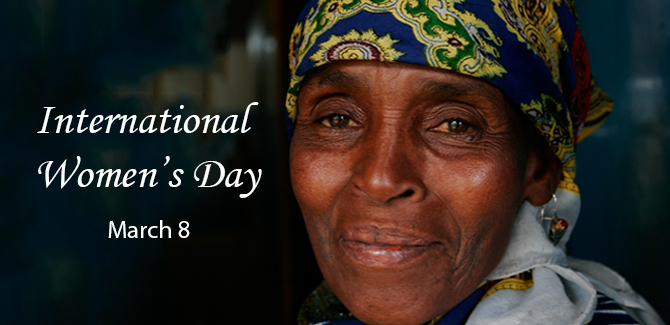Monday, 29 February 2016
 Penny* works at an institute that is training French-speaking African mission leaders and trainers in West Africa. She is also the director of a growing evening Bible school for local church leaders. In light of International Women’s Day approaching on 8 March, I asked Penny to share about the challenges faced by West African women and particularly those in Christian leadership.
What are some of the specific challenges facing West African women?
Penny* works at an institute that is training French-speaking African mission leaders and trainers in West Africa. She is also the director of a growing evening Bible school for local church leaders. In light of International Women’s Day approaching on 8 March, I asked Penny to share about the challenges faced by West African women and particularly those in Christian leadership.
What are some of the specific challenges facing West African women?
Western expectations placed upon women to be ‘Super Mums’ pale in comparison to the expectations heaped upon West African women! The cultural and traditional script written for these women see major obstacles stacked against their chances of success.
Education is the first big obstacle for these women. Many families don’t bother educating their girls. Sadly, it is not uncommon for girls to drop out as early as primary school due to their family’s preference for them to work at home or prepare for an early marriage. Once married, women are required to juggle the responsibilities of caring for her husband and children as well as working or having a little business to support her family.
It is very unusual for women in this region not to marry. I only knew of one single Christian woman leader who remained unmarried in her thirties. She faced great opposition and discrimination from the church despite the fact she was very well trained and gifted. Widows also face significant hurdles. Some are able to live with their older children but others are abandoned by their families and can even have their pensions taken away (in the rare case there is one) by the husband’s family.
These traditional expectations of women make it difficult for women to take on roles of leadership in their communities. However, there are small percentages of women at the highest level of government administration, women presidential candidates, and women ministers (often in traditional roles like Social Assistance, Women, Primary Education and Literacy), doctors and specialists, judges etc.
How do you see these challenges bleed into your ministry as you equip women for ministry?
I see the obstacles of low education and traditional family roles surface in many different ways as a teacher of mission leaders and trainers. We have a lot of competent women apply but sometimes we are required to be flexible with female candidates who do not have the required entry educational level.
In our residential schools, we fight against the ‘dumping’ of cooking and cleaning duties on female students who have as busy a schedule as the men. These women live far from their family households without the traditional support of family to help out with childcare. Many mothers find it difficult to concentrate on their studies unless their husband pays for childcare.
At our evening Bible School, most of the younger women such as the university students have dropped out when they get married or have babies. It is practically unheard of to “leave the children with their dad” or let the husband cook for himself two nights a week.
Why is it important to invest in the theological and Missiological training of West African women?
Local churches in West Africa often send couples to do cross-cultural church planting. In many cases neither the husband nor wife have received missions training or briefing about cultural differences. This can result in ineffective ministry and serious mistakes with long-term consequences.
The wives of pastors and missionaries here are automatically given responsibility for evangelism and the discipleship of women but more than often are not provided the training for this role. The souls of women need as much quality feeding as the souls of men, so these women leaders need to be trained in Bible interpretation and ministry skills. Among the younger generation, women are increasingly becoming involved as youth group leaders and teaching children. Women must be equipped with ministry skills to ensure a solid foundation is laid and the Gospel is passed on to the next generation.
Are there qualities that generalise Christian women in West Africa that you admire?
West African women are truly resilient! Most are doing their best in an environment where so much is against their success, not giving in to despair, and succeeding against tremendous odds.
One woman who exemplifies this is Ruth. For many years Ruth worked for me as house help in the mornings. She would wake each morning at 4am to collect water for her household before starting work. She spent her afternoon in school classes, beginning at primary level but working through to completing primary teaching. After class she would go home to care for her family and do housework. She would do her homework at night when the children were in bed by battery-operated light.
Her diligence was rewarded when she won a competitive government teaching position. Now Ruth teaches in a remote village without running water and electricity. She only gets to see her family once a fortnight. Despite this, I rejoice with her that she has her feet on the first rung of the ladder. In her own words, she has a chance to “shine for Jesus” in a village without a church.
*Names changed to protect identities
Comments
Blog post currently doesn't have any comments.